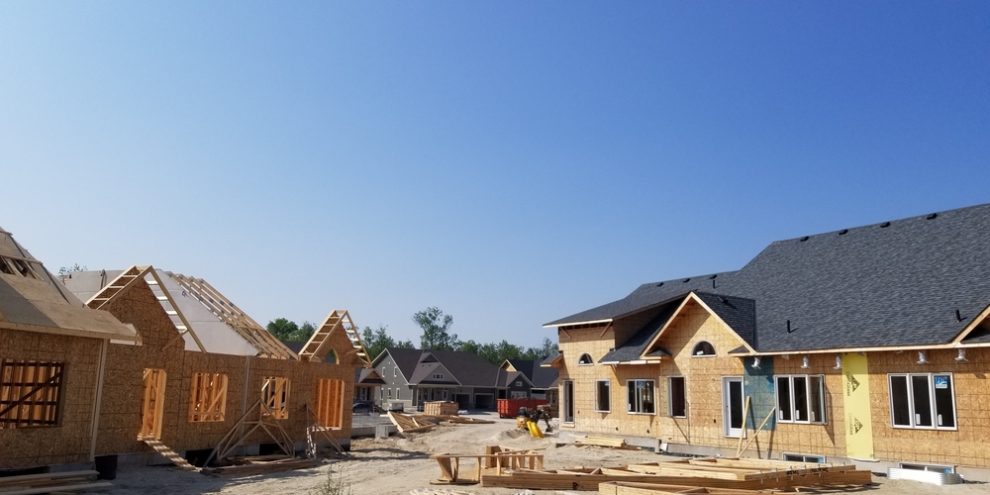
With files from The Canadian Press
Barrie Mayor Jeff Lehman says the Ontario government continues to target the wrong thing with its new housing legislation.
The Ford government has promised to build 1.5 million homes in 10 years and has identified 29 municipalities in which the bulk of the new housing will need to be built in order to reach that goal, and will require them to develop "pledges" of how they will meet their assigned targets.
Barrie will need 23,000 new homes.
"We already have 18,000 approved units, and it's not unusual for city council to approve 5,000 more units in a single year," says Lehman. "So, it's not a question of whether we approve 23,000 units or whether we would approve of the pledge we are being asked to take, so of course, we can."
He says the problem is they are not seeing that many homes built even though they are approved because developers are not proceeding with them.
"That's because there aren't enough people in the construction trades to build that many homes, and it's also because of supply shortages, inflation, and other issues," Lehman explains. "While it will be up to the next council, I strongly suspect Barrie can say yes to the pledge and yes to the target, actually accomplishing it is about other issues that weren't really addressed by the province in the bill."
Lehman believes some of the legislation has been driven by the development industry that says municipalities are not approving enough housing or are too slow doing it. He doesn't believe that is a problem in Barrie, though he says it might be in some municipalities where NIMBY (not in my backyard) is so strong, or planning policy is so restrictive that not enough homes are being approved.
PODCAST: Lehman explains why the housing plan is not as simple as it seems (and more local news)
"That's really the piece nobody is talking about, which is municipalities often approve developments, and then they don't go ahead," he says. "The City of Barrie, and really any municipality doesn't turn down a building permit. We keep working with people until they get their permit, and while that can take a long time, if you have planning approval, there is nothing standing in the way of building from a municipal perspective. So, it's really other issues in the economy."
One aspect of the bill introduced Tuesday by Municipal Affairs and Housing Minister Steve Clark would freeze, reduce and exempt fees developers pay in order to spur building.
Affordable housing, non-profit housing and inclusionary zoning units — meaning affordable housing in new developments — as well as some "attainable" units would be exempt from various charges.
But those fees go to municipalities to pay for services for residents of those homes, such as roads, community centres and transit.
Instead of growth paying for growth, and instead of developers and new homebuyers paying for growth, Lehman says the Ford government is taking this in another direction.
"He wants you and me to pay for growth through our property taxes, and that's wrong. It's wrong that the people in Barrie or Toronto or Hamilton who already own properties or through our rent if we are renting a house or an apartment."
Lehman says growth should pay for growth.
"That's been the principle that we have strived towards in Ontario and Barrie for almost 40 years and the Ford government seems to want to download the cost on the property taxpayers."
The mayor says the province has signalled that they will try and work with the federal government to prevent that cost from being downloaded and actually come up with federal housing funds. If they do that, Lehman says then "it's a really good idea. "
Clark was asked during Question Period in the legislature on Wednesday about the concerns expressed by municipalities around development charges. Clark said municipalities have $8 billion in development charge reserves.
"That number gets thrown around by the industry to make it look like municipalities are swimming in cash," says Lehman. "That's just plain false."
He says most of the eight billion is already committed to building infrastructure which takes time, and that eight billion is spread across 444 municipalities in Ontario, and some have more than others.
Lehman says Barrie's development charge reserve is in a negative position today.
"We are not swimming in cash," he explains. "The reality is that the City of Barrie's reserve fund in my time as mayor and through the last three councils has been used to build infrastructure. All the balance that exists is already committed to infrastructure that needs to be built to support the plan to grow. We have already spent the reserves to fund growth."
"In some cities where they're being asked to accept a higher target (of housing), they're going to have to build more infrastructure, and the notion they have money sitting in a sock drawer to pay for it is just plain wrong."
The government's housing legislation also proposes to allow more units on one residential lot, introduce more housing density near transit stations, reduce the property tax burden for multi-residential apartment buildings, and pursue rent-to-own programs.
As the legislation proceeds, the issue will land in the lap of the new Barrie city council, which will be sworn in next month.





